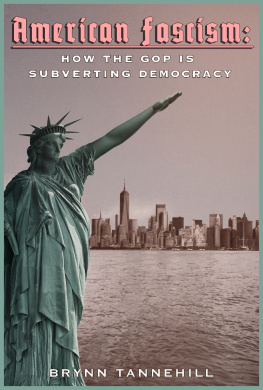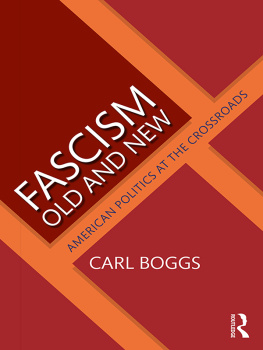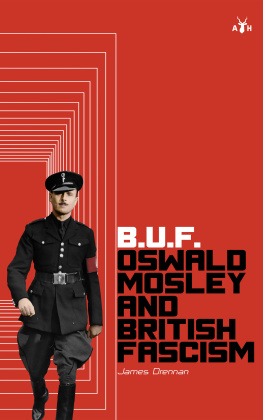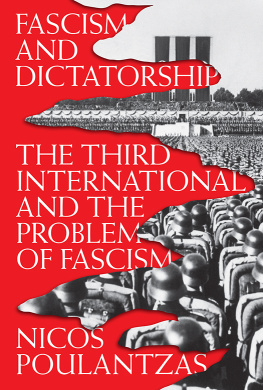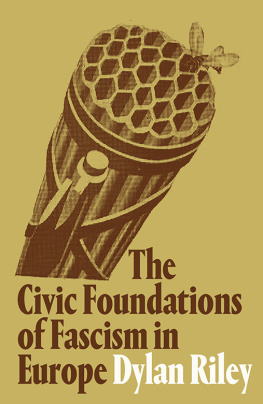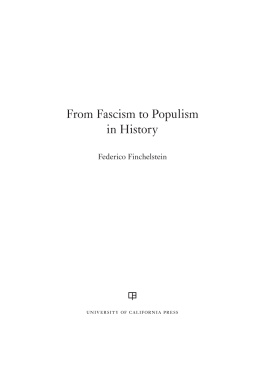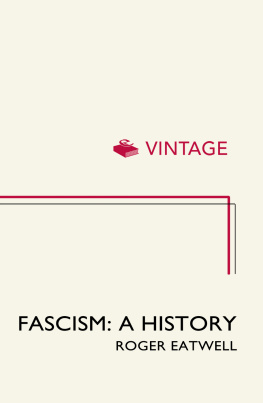Epigraph
Those who invest all their energies and hopes in an undertaking even tinged with depravity are bound to its success and are apt to acquire an obscure self-contempt which qualifies their faith, first in their fellows, and then in themselves.
Michael Oakeshott, The Tower of Babel
Title page
Democracy, Fascism and the New World Order
Ivo Mosley

IMPRINT ACADEMIC
Copyright page
Copyright Ivo Mosley 2003
The moral rights of the author have been asserted
No part of any contribution may be reproduced in any form without permission, except for the quotation of brief passages in criticism and discussion.
Originally published in the UK by Imprint Academic
PO Box 200, Exeter EX5 5YX, UK
Originally published in the USA by Imprint Academic
Philosophy Documentation Center
PO Box 7147, Charlottesville, VA 22906-7147, USA
2012 digital version by Andrews UK Limited
www.andrewsuk.com
Acknowledgements
I cant acknowledge by name all the people whose conversations have informed this book. Some might lose their jobs and others Ive forgotten. But I hereby thank them all nonetheless.
Most thanks of all are due to Keith Sutherland, who encouraged this project and is prepared to publish it now its complete. He demanded high standards from my lazy brain, and I hope he got them.
And finally Id like to thank in advance anyone who buys this book. I need the money.
Introduction
Now power is of its nature evil, whoever wields it. It is not stability but a lust and therefore insatiable, unhappy in itself and doomed to make others unhappy.
Jacob Burckhardt
If you gain every morsel of your bread from the powers that be, and you wish to be sure of getting that little bit extra, then you are wise to give up thinking altogether
Nadezhda Mandelstam.
Democracy is the worst form of government in the world except for all the rest! With these words, Winston Churchill expressed a quandary of the modern age: that whatever the disappointments of democracy, other forms of government throw up horrors even worse. Not only that; other methods of government are inconceivable to us, because as free people we naturally expect a role in choosing who governs us.
Yet there is a widening gap between what we expect of democracy and what it has actually turned out to be. When democracy is limited to throwing out one bunch of rogues every few years only to let another bunch in; when it demands more and more regulation and scrutiny of our lives while delivering more and more inept and wasteful management; when it ignores problems which concern us all such as drugs and environmental degradation but is keen to rush off to war; when we are suspicious of the truth or falsehood of the every utterance of those who represent us; then it is falling seriously short of what we expect.
In practice, democracy means different things to different people. To some, it means the guaranteed right to a roof and a meal. To others it means the chance, however small, to influence government. To yet others, it may mean a hope that government will represent the best of what we are, because overhanging each government is the threat that it wont be re-elected.
I want to argue that democracy can be something else and something more; not just government by the majority but self-government by all the people; a way of living together in which people genuinely exercise varying degrees of control and responsibility and choose who among them will have authority, and in which the workings of government are limited as much as possible to the rule of law. To some extent, this involves a recovery of what weve lost, of what used to be called civil society before that term was redefined to mean a convocation of socialized robots. It also involves a different understanding of the citizen vis--vis the state; a relationship not of dependency but of vigilance.
I have a personal interest in the subject of this book. My grandfather was the fascist leader Sir Oswald Mosley. I grew up with a strong interest in the themes of power and freedom, and in the unhappiness that is unleashed when the pendulum swings towards power. The fascist model of society, committed to a common purpose and led by a messianic defective leader who only feels truly alive when imbued with power, is being aped in many respects by modern democracies. Democratic politics (as they unfold in reality) are not a direct opposite of communism and fascism, but a continuation of the theme of tyranny by the majority, and therefore aptly christened by Mr Blair The Third Way. Politics has become not a conversation about the law to which we citizens must all subscribe, but games of deception, intrigue, management and power.
An electoral majority whose favourite reading is The Sun , Hello! or National Enquirer will obviously deliver a different kind of democracy to one whose favourite reading is Aristotle and Hobbes, even if vocalizing this thought is akin to saying I like sex in a Victorian drawing room. Majorities show a consistent preference for parties and governments who promise to put right all those miseries and inequalities which used to be laid at Gods door. Whereas civil society mitigated or alleviated those ills, governments have done little but exacerbate them, in spite of all their promises. Governments which promise heaven always deliver hell, because the powers they assume in order to deliver heaven create hell. Heaven on earth is, as every religion knows, an impossibility.
The common purpose uniting Western governments is to bring affluence and hide the costs. The costs are to freedom, individuality, diversity, knowledge, understanding, civility, education, art, nature, the simple enjoyment of living and finally to civilization itself. Simple majority democracy lets us all down because however much the majority as individuals may deplore what is happening, they show neither the will nor the understanding to insist that democracy takes another path.
This parallel was first brought to public attention by Max Beloff, Third WayThird Reich, The Times , February 1999.
1: Democracy and its Corruptions
The one pervading evil of democracy is the tyranny of the majority, or rather of that party, not always the majority, that succeeds, by force or fraud, in carrying elections. That sentence, so resonant with recent events all over the world and particularly in America, was written by Acton in 1877. The problems with democracy have a long pedigree.
One problem is that democracy has always had two definitions. The first definition is government by and for all the people. Since the word democracy means literally the people rule, we may take this to be the true as well as the desirable meaning; but it is hard to implement in practice, because a people will have many different interests, all clamouring to be heard and acted upon. In practice, the only way it can be implemented is for government to remain above and beyond the clamour of different interests; but this is not the route that has been travelled.
The second definition, easier to implement but potentially much less satisfactory, is government by a simple majority. And government by majority is all too apt to degenerate into government by a minority, as disillusioned voters, who feel they are represented by no particular party, drop out of the voting altogether.
Common to all democracies in practice is a law-making body consisting of representatives elected by majority popular vote. If we prefer the more difficult definition of democracy government by and for all the people it follows that minorities may require protection from the majority, which may be decent and well-meaning, but equally well may not.
Next page

